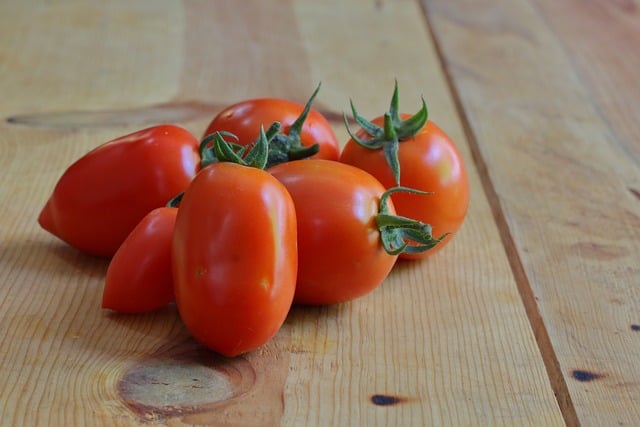As the winter season rolls in, so does the increased risk of colds, flu, and other illnesses. A well-balanced diet can act as your first line of defense, bolstering your immune system to keep you healthy during the colder months. This detailed guide will help you understand what to eat, what to avoid, and how specific nutrients can help you thrive in winter.
Why Your Winter Diet Matters
Winter often brings a drop in temperatures and an increase in indoor gatherings, creating a perfect environment for viruses to spread. During this time, your body needs an extra boost to fight off infections, and a nutrient-rich diet can provide the necessary support. Research shows that a strong immune system can reduce the duration and severity of illnesses like the common cold by up to 30% (Journal of Nutrition, 2021).
Foods to Eat in Winter for Immunity and Energy
1. Citrus Fruits: The Vitamin C Powerhouses
Citrus fruits like oranges, grapefruits, lemons, and limes are packed with vitamin C, a key nutrient for immune function. Vitamin C helps stimulate the production of white blood cells, your body’s frontline defense against infections.
- Why Eat Them? Studies suggest that adequate vitamin C intake can reduce the risk of catching a cold by 50% in physically active individuals.
- How to Incorporate: Drink fresh orange juice, add lemon to warm water, or snack on grapefruits.
2. Leafy Greens: Nutrient Dense and Versatile
Spinach, kale, and Swiss chard are rich in antioxidants like beta-carotene and vitamin E, which help protect cells from oxidative stress and inflammation.
- Why Eat Them? They provide fiber, iron, and folate, which are crucial for energy and overall health.
- How to Incorporate: Use in soups, stews, or smoothies for an easy nutrient boost.
3. Nuts and Seeds: Immune-Boosting Snacks
Almonds, walnuts, sunflower seeds, and flaxseeds are excellent sources of healthy fats, vitamin E, and zinc, all of which are vital for maintaining a strong immune response.
- Why Eat Them? Zinc has been shown to reduce the duration of colds by up to 33% (Cochrane Review, 2018).
- How to Incorporate: Sprinkle on salads, blend into smoothies, or eat as a mid-day snack.
4. Fermented Foods: Gut Health Equals Immune Health
Probiotic-rich foods like yogurt, kefir, kimchi, and sauerkraut help maintain a healthy gut microbiome, which plays a crucial role in immunity.
- Why Eat Them? A healthy gut microbiome can reduce respiratory infections by improving your body’s immune response.
- How to Incorporate: Add yogurt to breakfast bowls or include kimchi as a side dish.
5. Garlic and Ginger: Natural Anti-Inflammatories
These spices are renowned for their medicinal properties. Garlic contains allicin, which has antimicrobial effects, while ginger helps reduce inflammation and soothe sore throats.
- Why Eat Them? Regular consumption can reduce the risk of respiratory illnesses by enhancing immune cell activity.
- How to Incorporate: Add minced garlic and grated ginger to soups, teas, and stir-fries.
6. Fatty Fish: Omega-3 for Reduced Inflammation
Fish like salmon, mackerel, and sardines are rich in omega-3 fatty acids and vitamin D, both of which are essential for regulating the immune system.
- Why Eat Them? Vitamin D deficiencies are linked to higher rates of respiratory infections during winter.
- How to Incorporate: Grill salmon or include canned sardines in salads.
7. Root Vegetables: Seasonal Comfort Foods
Sweet potatoes, carrots, and beets are high in beta-carotene and antioxidants, supporting skin health and immune defense.
- Why Eat Them? Their natural sugars provide sustained energy, making them ideal for cold-weather meals.
- How to Incorporate: Roast root vegetables or use them in hearty soups.
8. Whole Grains: Long-Lasting Energy
Oats, quinoa, and brown rice are excellent sources of complex carbohydrates and B vitamins, which support energy production and mental well-being.
- Why Eat Them? They provide the energy needed to stay active during shorter, darker days.
- How to Incorporate: Start your day with oatmeal or serve brown rice alongside your favorite winter dishes.
Foods to Avoid in Winter
1. Sugary Treats
Excessive sugar intake can suppress your immune system for hours, making you more vulnerable to infections.
- Better Alternative: Swap sweets for fruits or dark chocolate to satisfy your cravings.
2. Processed Foods
High-sodium and trans-fat-heavy processed foods can increase inflammation and weaken your immune response.
- Better Alternative: Opt for homemade meals with fresh ingredients.
3. Alcohol
Excessive alcohol consumption can dehydrate the body and impair immune function.
- Better Alternative: Stick to herbal teas or infused water to stay hydrated and warm.
Hydration: The Often Overlooked Winter Essential
Cold weather can decrease your sense of thirst, but staying hydrated is crucial for maintaining a strong immune system. Warm drinks like herbal teas, bone broth, and infused water are great options to keep fluids up without feeling chilly.
Lifestyle Tips to Complement Your Winter Diet
- Stay Active: Regular exercise boosts circulation and immune function.
- Prioritize Sleep: Aim for 7-9 hours to allow your body to repair and recharge.
- Manage Stress: Chronic stress can weaken your immune response, so incorporate mindfulness or yoga into your routine.
Conclusion: Thrive Through Winter with the Right Diet
Your winter diet plays a pivotal role in maintaining your health and well-being. By incorporating immunity-boosting foods like citrus fruits, leafy greens, and fermented foods and avoiding sugar and processed items, you can ensure your body is ready to tackle the colder months. Pair your diet with good hydration, adequate sleep, and regular exercise for a holistic approach to winter wellness.
Take charge of your winter health today—your body will thank you!


Pingback: The Gut-Brain Connection Diet: How Food Impacts Your Mental Health - Wellness Readers Digest